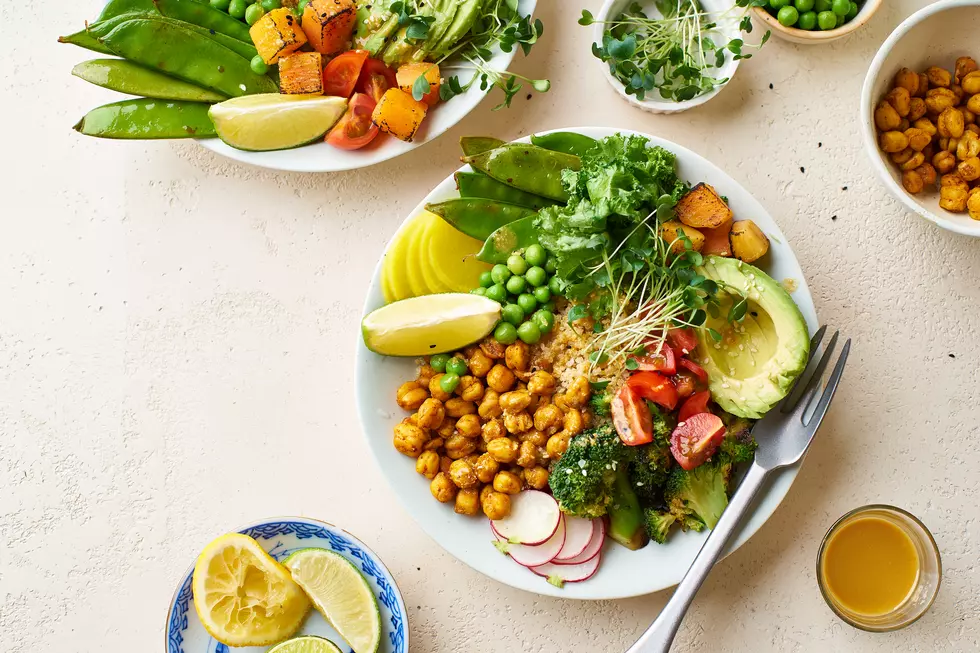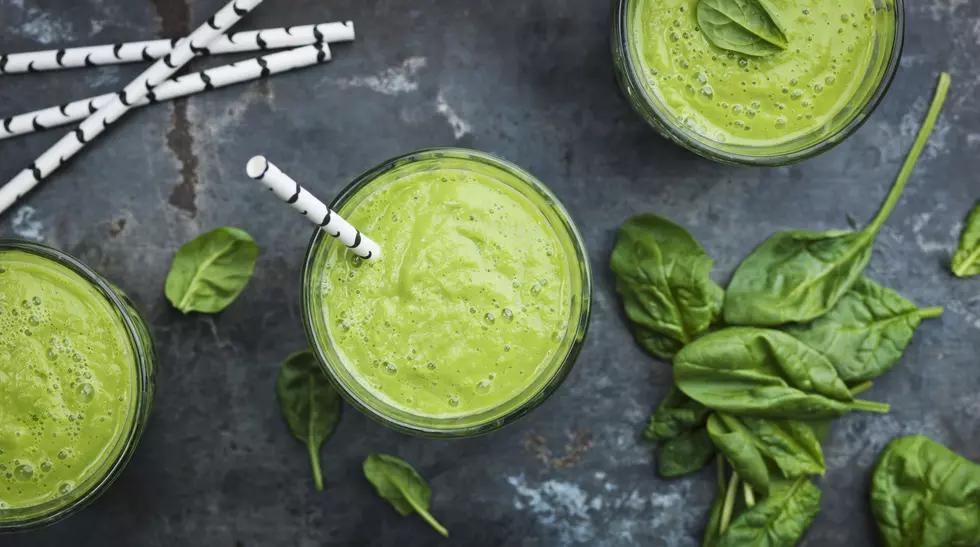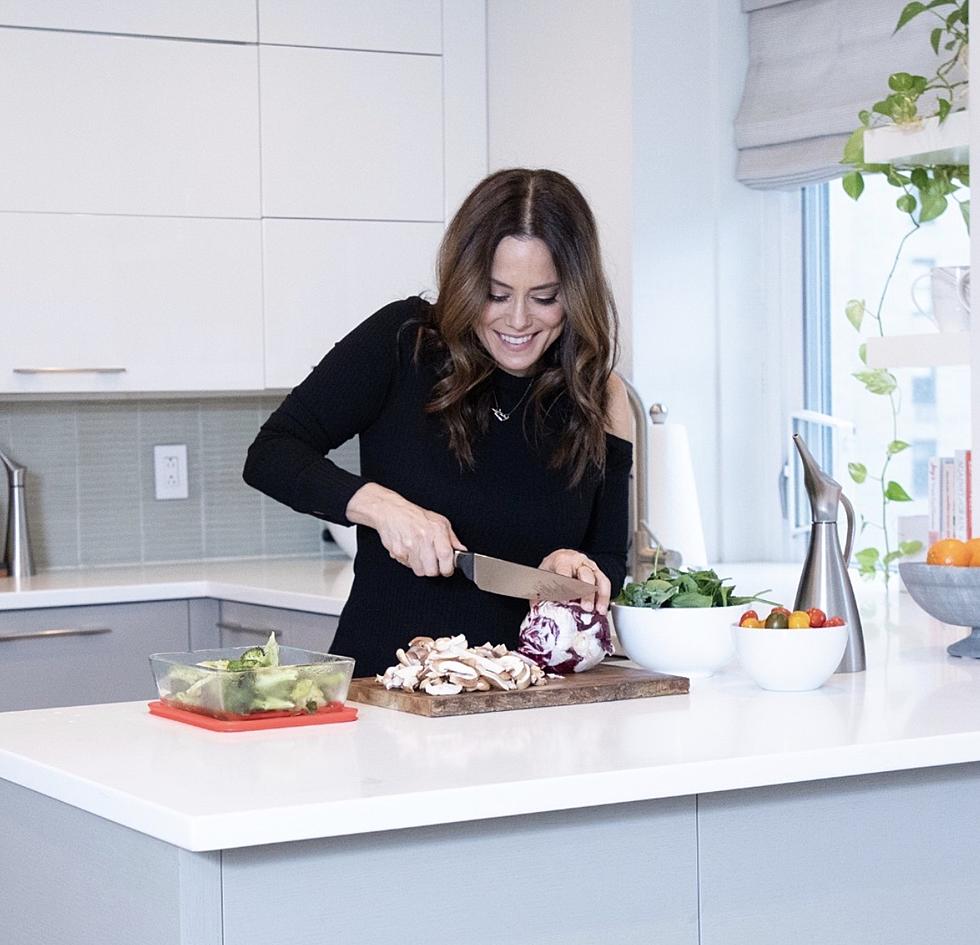
5 Tips on How to Go Plant-Based and Save Money, by a Nutritionist
When you go to a nutritionist and ask them questions about your diet, you want a straight answer to questions like:
"Should I go plant-based or try out a vegan diet?" Answer: It depends on the reason you want to ditch meat and dairy–since it's very individual.
"Where do I get my protein when I don't eat meat?" Answer: From plants, the same way every other animal that does not eat meat gets theirs. Plant-based foods like lentils, soy and beans are extremely high in protein.
"Is it expensive to go plant-baed or vegan? The image in my head of a vegan dieter is the designer yoga pants set, shopping for organic vegetables, paying extra, and that is so not me right now!" Point of fact: It's actually cheaper to go plant-based since meat is one of the most expensive things you can add to your cart, along with packaged junk food.
These are the questions (and the clear-eyed answers) that nutritionist Marisa Moore, R.D, hears in her practice, especially from young women in and around her Atlanta office, and among college students who think it's trendy to be vegan or try to eat more plant-based food. She often digs deeper before answering–to find out why they are interested in going vegan and then she helps them transition to more plant-based eating in a healthy, balanced, and affordable way.
Moore, who has her own website. offers recipes, counseling, and great advice for anyone considering starting out on a plant-based diet to try to eat healthier. Moore herself has been vegan and vegetarian in the past, but she is not practicing any specific named diet approach right now, other than to eat healthily.
She advises her clients to do the same, via a primarily plant-based diet rich in vegetables, fruit, legumes, grains, and a little bit of fish. Her recipes, like Vegan Pumpkin Lentil Curry with Spinach, make you want to cook vegan tonight. "Most of the things I eat and share are plant-based," she says. This makes her a uniquely balanced and credible guide through the landscape of going plant-based or simply leaning into plants since she has no bias in urging clients to eat this way, other than the fact that it's a healthier way to live.
Most importantly do it for yourself and your reasons, she tells clients, and not because you want to look perfect on Instagram. Her best advice for starting out on a plant-based diet:
Here Are Moore's 5 Tips to Anyone interested in Going Plant-Based and Save Money
1. Find your "Why" and start eating plant-based... slowly
"When someone comes to me and says they want to go plant-based, first I like to figure out their why. What is the driving desire behind switching to a plant-based diet? Whether a person's motivation is for ethical reasons or health reasons, that helps me figure out how we can work together.
"I like to encourage people to start slow, pick one day a week to go plant-based, and focus on eating a meatless meal that day. Sometimes that is a foreign concept since many people center their meals around meat. The first thing we work on together is changing the prevailing mindset that meat is the center of your meals. Slowly I encourage them to add more and more plant-based foods to their meals over time. First, you add two more plant-based meals a week, and then four... or more. Before you know it you're eating mostly plant-based."
2. Eat plant-based for a trial period before taking the leap
"People don't understand how delicious plant-based meals are. When I do cooking demos for people and they taste the food, they are shocked that these are vegan or vegetarian meals and they're always completely surprised at how good the food tastes. The most important thing is to try it out and really be open to new and interesting foods, since you may love it.
"Sometimes, I find out people want to go plant-based but they don't like vegetables or beans. This makes me worry about their nutrient deficiencies, which is an entirely different journey since they then have to work harder to get all the nutrients they need. If you don't like beans and vegetables you need to keep close tabs on your vitamin B and D, your iron and all of your different markers, and see how you're getting along."
3. Where do you get your protein? from legumes, like lentils
"I used to do supermarket tours. Now I focus more on showing people all the different ways to they can use whole foods, like the brown and green lentils, which are great for soups, and stews and it turns out that most people know those. But you can show them that unlike beans (which need soaking), lentils cook pretty quickly. I will then introduce them to black or beluga lentils, which have a sturdier texture and are great for salads or grains and will hold their form. Next, I show them that red or lentils cook really quickly and those are great for curries or soups. Usually, they have no idea there are this many choices of legumes.
"We get into a rut sometimes and always cook the same things like green peas or green beans. But when you look into the choices out there, it's fun to try all these varieties, like split peas or yellow ones. There are so many ways to make Dahl for instance and curry, and then you can explore other cuisines. That is how we start to explore. People need guidance or some ideas to get started."
4. Saving money means buying in bulk but only what you need
"Change the visual you have of eating plant-based. You look at Instagram, and everything is pricey and perfect and aspirational, such as a beautiful smoothie bowl that costs a fortune to make or to buy at a local Acai place, but it's really not about that. It's about buying what is going to nourish you and investing in your health and your body. You basically have to choose whether you want to pay for convenience or you' pay in terms of the time you spend making your healthy food.
"To save money, you can buy dried beans and pressure cook them, which is more work, but so much less expensive than even just buying a can of beans that you heat up. To save money, stock up on plant-based dry goods like beans, grains and whatever is in season. So pay attention to when foods go on sale at your market or check out the aisle that has all the bulk beans or nuts, or seeds, or lentils or grains.
Then try out a new grain, such as farro or amaranth. Just buy one or two servings at a time, which also saves money since you don't have wasted food. The fun thing is to try out new types of seeds like pepitas and nuts like pili nuts, which have a lot of protein. Still go to the cheaper bulk bins for your pantry essentials, but then portion things out if you live alone and don't need to buy more than you will use in a week. In most markets, you can find those self-serve buy by the ounce or the pound. Figure out what works for you without making a huge commitment."
"Here in Atlanta, we have an international farmers' market where you can buy spices and nuts and seeds and grains all straight from the growers. So my advice is: Look at what is available to you, in your neighborhood. Most places have a Sunday farmer's market. Go and be open-minded. Don't be afraid to try something out new. The already packaged beans will be pricier than the loose ones, but that is where you decide whether you're going to prioritize saving time of money. When you ditch meat and dairy and don't buy junk food you will save money at the checkout counter, and one study shows you can save $23 every week! And this is by buying healthy food, like chickpea flour which may be more inexpensive than you'd imagine."
5. Give yourself some grace, and don't do it for the likes on Instagram
"There is a lot of pressure when you say you are going plant-based or vegan, and sometimes the best way to start is not to put a label on it. Since I see young women especially declare to their friends or followers they are starting to be vegan or plant-based and then they feel this immense pressure to follow certain strict guidelines or fit within that label. College-aged women are influenced by their favorite peoples on Instagram or they have watched documentaries that influence their decision to go plant-based overnight. I think it is a food trap to put that kind of pressure on yourself. It's so important to give yourself some grace, especially around food, because they think they have to be perfect. And to be healthy and eat a balanced nutritious diet doesn't have to be perfect. Just try your best and eat plant-based most of the time and you will achieve your goals.
"I didn't grow up with social media the way it is today, and my clients think everything has to be perfect and they all think that they have to be perfect. And one thing that looks perfect to them on social media is to say you're "going vegan." But that is not the reason to do it. For social media or peer pressure or to appear perfect to your social followers. Eating mostly plant-based should be a healthy pursuit. So I tell them they need to give themselves a break."
More From The Beet









